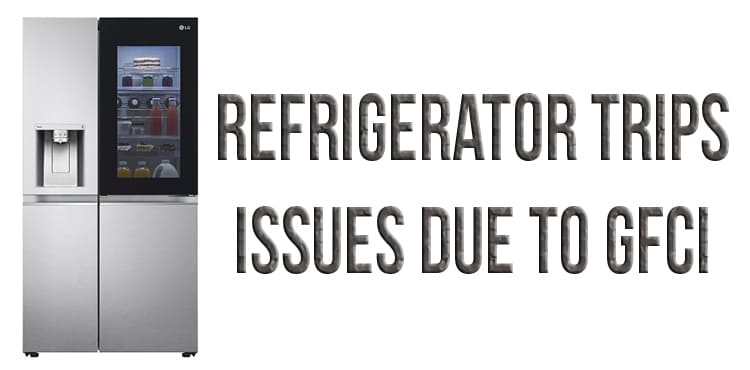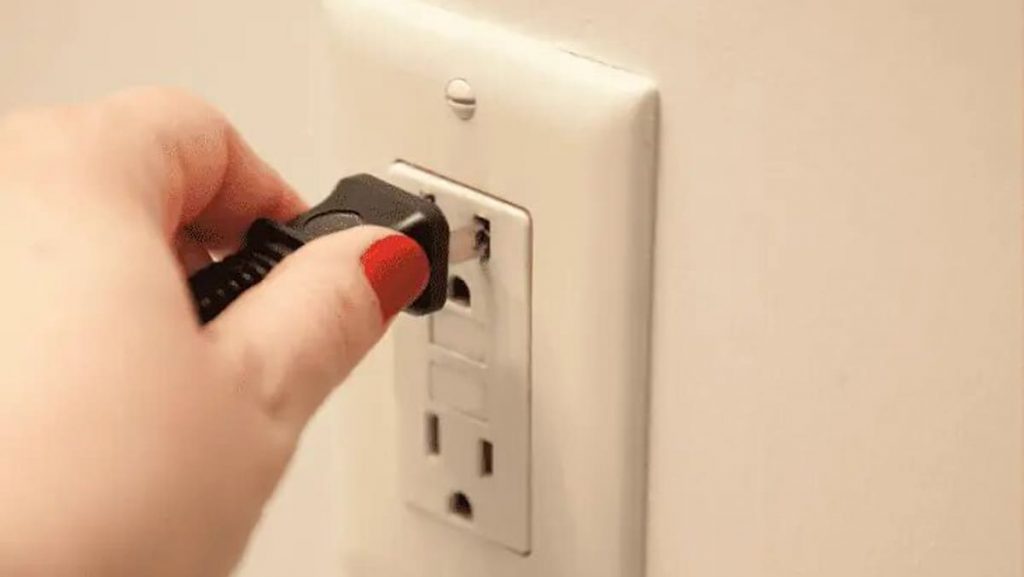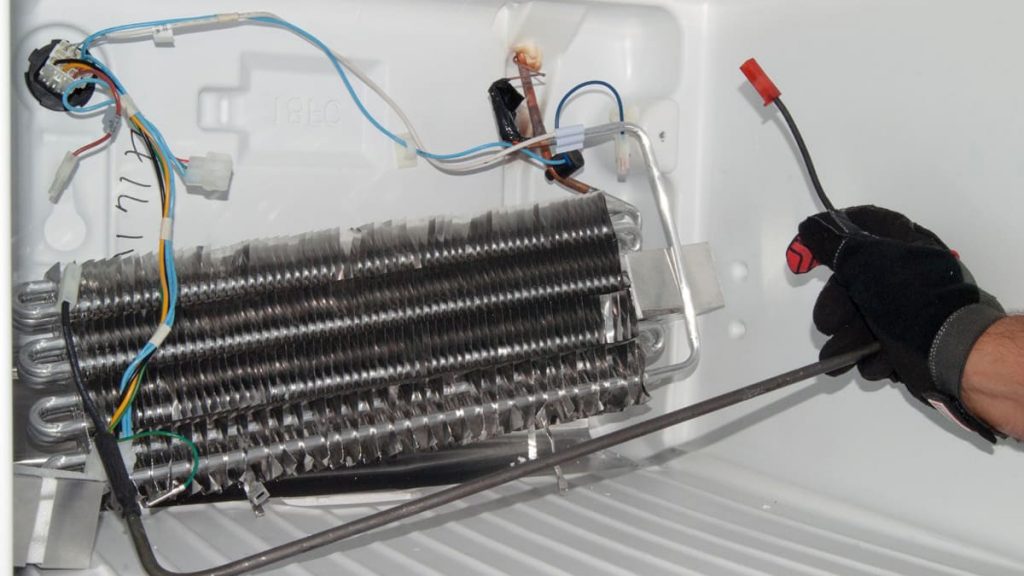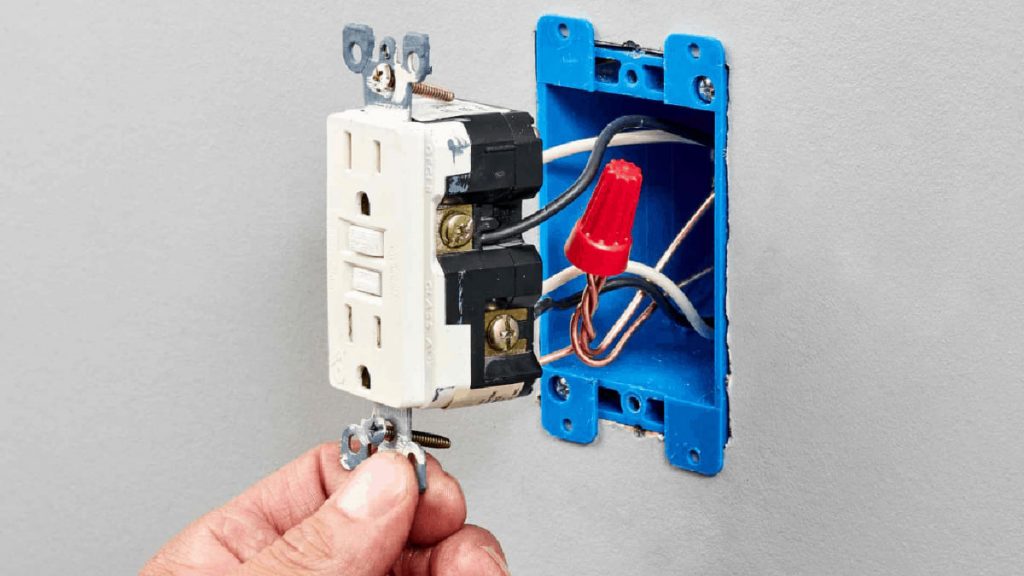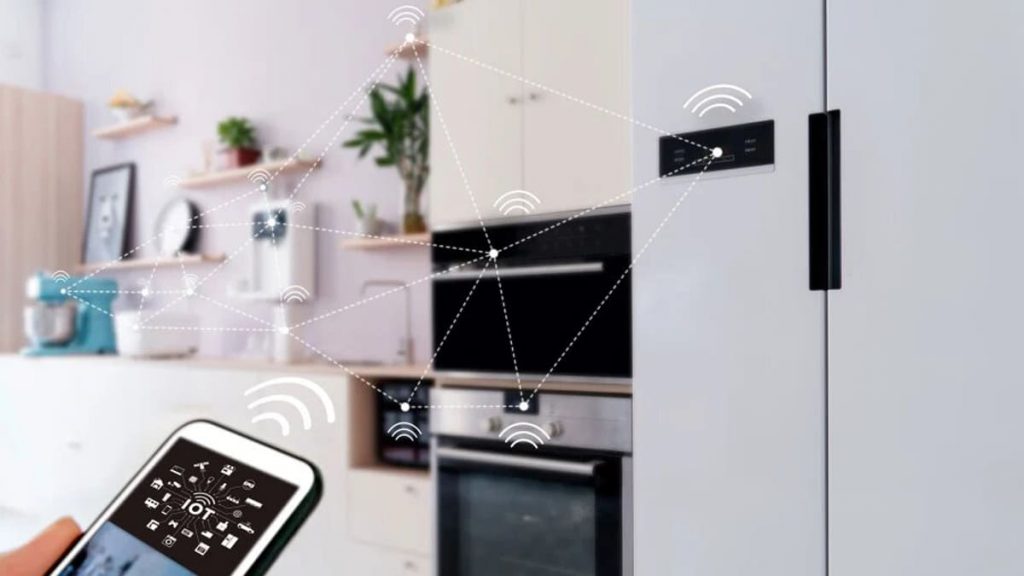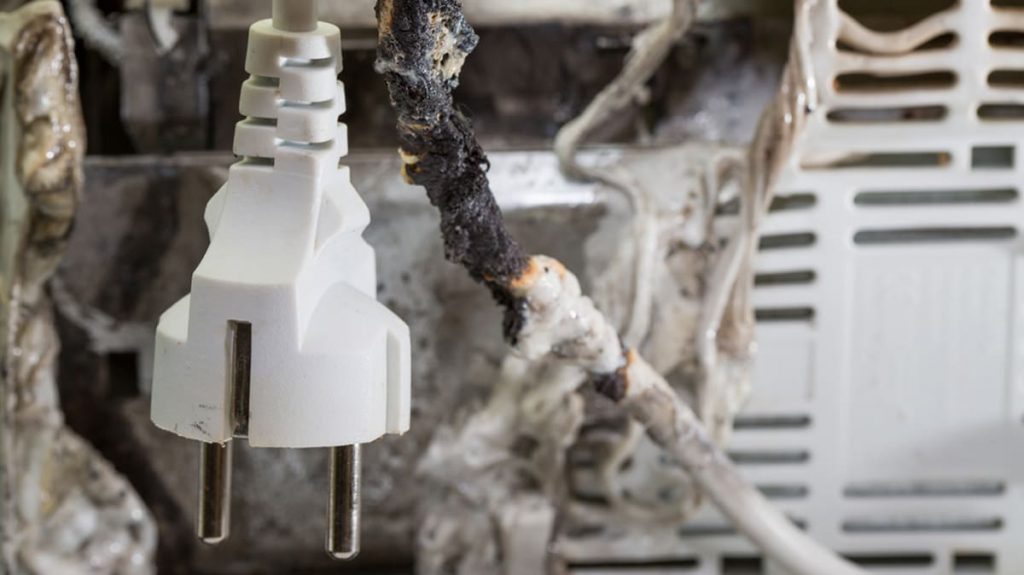If your refrigerator has begun to shut down due to GFCI, it is important to notice this in time. The reasons for the shutdown may be different, but the consequences are obvious – food will simply go bad in a non-working refrigerator. First of all, you need to find out why household appliances are turned off. After that, address the issue of troubleshooting to ensure the correct operation of the refrigerator. We will learn what GFCI is, why household appliances turn off because of it, and how to fix it.
What is GFCI and why they are installed?
GFCI is a ground fault circuit breaker. It is usually used in those rooms where high humidity and there is a risk of exposure to water. These can be bathrooms, toilets, garages, etc. This type of outlet avoids electric shock.
GFCI is not a fuse, not a circuit breaker. These elements should not be confused, as they perform different functions.
If the fuse or circuit breaker are independent elements built into the electrical line of the house, then the breaker is built into the outlet. If you include household appliances in a power supply with GFCI, then the amount of energy passing through it will be under control.
For example, a switched-on hair dryer accidentally falls into a bathtub or sink with water, then the breaker will immediately turn off the power. It will trip when a current interruption is detected. This can not only get rid of a short circuit but possibly save a life.
Why does the refrigerator disable GFCI?
Due to the refrigerator, the socket with a built-in breaker may turn off for some reason. To prevent this from happening, you need to fix the problem. Consider the most popular:
Erroneous shutdown
There are models of refrigerators with built-in vapor compression. This process results in inductive loads. When induction is turned off, it can create electromagnetic interference that will turn off the outlet.
You can try to minimize the impact of interference with dampers, and deceptive devices. To do this, a shock absorber is installed between the interrupter and household appliances. If this does not help, then simply replace the GFCI with a regular outlet so that the refrigerator runs constantly and does not turn off.
Faults caused by the icemaker or defrost heater
Older refrigerators are often not equipped with an icemaker or an automatic self-defrost function. But if these elements are present in older models, malfunctions can be caused by an ice maker or heater.
If you have just such a model of household appliances, it is better to use a regular outlet without a built-in GFCI. In the case where it is important to keep the interrupter, you will have to disable additional functions, otherwise, the technique will constantly turn off the power source.
Ground fault
The short may be caused by a wiring problem. If it is damaged, the electricity leaves the circuit in an unplanned path. Current can flow through electrically conductive elements, such as metal. This can be dangerous to health and even life, as the risk of electric shock increases if you touch them.
When the refrigerator is connected to a GFCI power supply, the appliance will detect the problem and shut down for safety reasons. If you replace the outlet with a regular one, the problem will not go away. You need to inspect the wiring for damage.
Additionally, you can check the defrosting circuit of the freezer, if it is faulty, then the refrigerator will also turn off the circuit breaker. If the outlet turns off periodically, for example, every few hours, it is better to call the wizard. He will determine the cause and fix the problem.
Additional Information
Our recommendations will help you try to find out the reason for the disconnection of the outlet, so we suggest that you familiarize yourself with additional information on GFCI:
- Refrigerators often do not get along with GFCI, but the connection to this type of power supply is not always required, especially if household appliances are connected to a dedicated circuit;
- if household appliances were previously connected to a power source and worked normally, but then malfunctions appeared, check the socket, wiring, and other elements, it may be necessary to replace the faulty sections of the circuit;
- if the refrigerator is not in the house, but for example in the garage, maybe the power supply is not suitable, or there are problems with the wiring, in this case, you need to install a suitable socket and solve the problem with the electrical circuit.
Why does the refrigerator keep turning off GFCI?
If you’ve tested your refrigerator and outlet as described above, but your appliances keep turning off the GFCI, the cause could be anything from overloaded electrical outlets to improper grounding. Before you start troubleshooting the refrigerator, first check the nuances with sockets and wiring. The following problems are common.
Network congestion
Often they switch trips due to an overload in the mains. This happens when the load on the chain is greater than it is capable of delivering. It is necessary to correctly distribute household appliances in the electrical circuit so as not to overload the line.
If the overload is the cause, unplug everything but the refrigerator to see if the refrigerator is the problem. If the outlet also turns off, then you need to continue looking for the problem. If the shutdown stopped, then it was really an overloaded electrical circuit.
Short circuit
A short circuit can occur when two wires inside a household appliance or inside an outlet come into contact with each other. In this case, a surge of electricity occurs, and the switch trips.
The problem with a short circuit can be inside the device, inside the outlet, or inside the wall in the wiring, so it is better to call a specialist to determine the problem area.
If the switch worked immediately after connecting the refrigerator, try checking the outlet with another household appliance. If it works, then the short circuit was inside the refrigerator. If the second device is also turned off, then the circuit occurs in the outlet.
Why is the refrigerator turning off GFCI on the generator
The refrigerator can turn off the breaker socket both when connected inside the house and when connected to the generator. The switch may trip for the following reasons:
Ground fault
If a ground fault occurs in the refrigerator, it will turn off the GFCI on the generator each time. To fix the problem, you need to find out which part is faulty in household appliances and repair it or replace it with a new one.
Faulty alternator
Shutdowns can be due to problems with the generator itself. If it is new and under warranty, then it is better to replace the device with a new one. If the generator is already old, then you need to try to find a malfunction in it yourself or with the help of specialists.
Electrical leakage
If the interrupted outlet notices an electrical “leak” when the current exits the device and takes an unplanned path, then the power supply will be cut off for safety. Electricity leakage can occur for various reasons. It is better to search for a problem area with the help of a specialist using professional equipment.
Grounding problem
Often, generators are manufactured with a zero ground jumper. When connecting a generator to a home, this grounding jumper must be removed. This will help prevent the false triggering of the switch. If the generator is not connected to the home network, the earth jumper must not be removed.
Disabling GFCI can occur for various reasons. Our recommendations will help you identify the problem and even possibly deal with it. If you are not sure that you can figure it out, it is better to call a specialist. Remember: working with electricity without professional knowledge, experience, and special equipment can be life-threatening.
